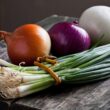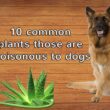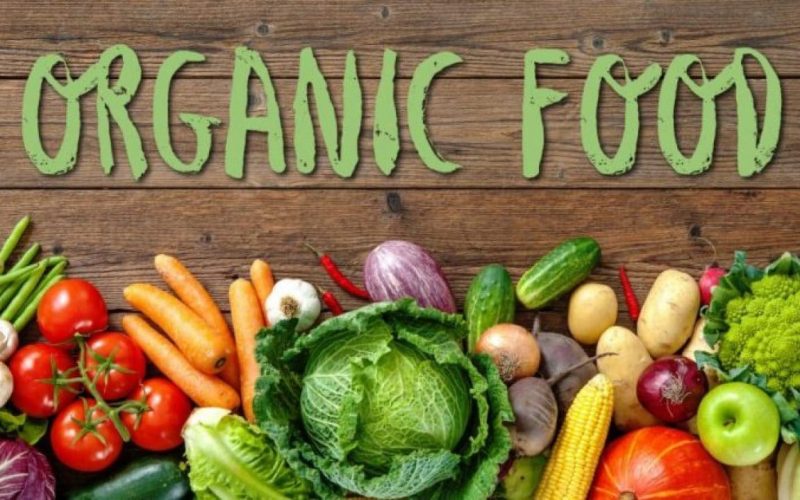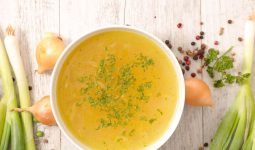Going organic is becoming a thing for people who love nature and want to eat clean. It is a beautiful idea to change the world by changing how you eat.
However, there are some reasons why people have towed the organic lane that is based on misconceptions. Do organic foods really taste better, are they more nutritious, and are they indeed better for animal welfare? Let us find out.
Year on year there is a significant increase in the sales of organic foods. It has been assumed that this increase in sales rate is due to the rise in a number of people who are getting more conscious of the foods they eat because of the use of pesticides, coupled with the increasing awareness of how most foods are produced and the distance they might have travelled before reaching the local market.
If you are looking to know the pros and cons of organic foods before you decide whether or not to feed on them, this article has got you covered.
Pros
- Organic farming is very natural and environment-friendly compared to other kinds of agriculture; therefore, when you visit an organic farm, you will discover there are a variety of plants and animals (excluding the organic food itself).
- Foods that are organically produced contains no fats that are hydrogenated, whereas foods that are non-organic contain hydrogenated fat. Heart diseases have been linked to hydrogenated fat so it is common sense that people who are aware of this will choose to protect their hearts by choosing the cleaner option.
- If you are worried about how people treat animals and fed, then you may want to consider choosing an organic diet as organic farmers make sure they feed their animals with only natural foods and they keep them in free-range conditions that allow them the freedom they should have.
- Under organic standards, crops that are genetically modified are not allowed so you have no fear of buying GM crops from the natural food section of the local market.
- If pesticides are your major fear, then organic foods should be your go-to option as there is little or no pesticide residue in them. This is because only a tiny number of farming chemicals are allowed in the production of organic foods. However, it is noteworthy that there is a possibility of producing the conventionally-grown vegetables and fruits with a little pesticide residue as possible. In fact, pesticides residues are often not detected in about 70% of the produce sampled by the pesticide residue committee ( They also tend to pay more attention to problem crops)
Cons of buying organic foods
Most good things in this world of ours have a few not so good sides, and we can’t afford to neglect these sides. What we can do, however, is to weigh both sides and make a choice.
- A major con of organic foods is that they may go off more quickly than non-organic foods. This happens because organically produced fruits and veg are left in a very natural state without artificial preservatives and they are not irradiated.
- Organic foods are more expensive in the market than inorganic foods for obvious reasons ( The cheaper the less healthy)
- A lot of people have been made to believe that all organic foods are produced with no chemicals at all but this isn’t wholly true. Contrary to this popular opinion, limited amounts of farming chemicals are allowed in the production of organic foods.
- This might break your heart but I have to put it out there. According to the French Food Safety Agency, the UK Food Standards Agency, and the Swedish National Food Administration, A few recent scientific research has discovered that the organic foods we assume are the safest are indeed no more reliable or contain more nutrients than the foods produced using conventional methods of farming.
- Eating strictly organic foods is believed often to be a healthier option than feeding on the equivalent non-organic produced crops. None the less, the consumers association of the united kingdom has reached a conclusion based on studies that there is no consensus on any report that shows a link between organic foods and health benefits.
Buying organic foods
Before you start thinking of which organic foods you would love to purchase, the first thing to consider is the balance of your diet.
It is healthy to eat plenty of fruits and vegetables and also starchy carbohydrate plants and foods (examples are rice, bread, potatoes, breakfast cereals, and paste).
Aim to consume at least two servings or protein foods daily and also two serving of dairy foods that is low in fat. Following this pattern will mean that you feed on lesser surgery and fatty foods which are good for your health.
Let us check out a few things to look out for when buying organic foods
- Are you a lover of potatoes? If yes, go for only organic potatoes, lettuce, spinach, and cabbage. The reason for this suggestion is that these organic foods are blessed with a higher amount of vitamin C, iron, magnesium, and phosphorus than the non-organic versions of them.
- Opt for organic vegetable soup. Studies have discovered that organic soup has a content of about six times as much salicylic acid as the non-organic ones. What does salicylic acid do? What this acid does is to help with the hardening of the arteries and also help combat bowel cancer.
- Apple lovers should opt for the organic ones. Did you know that some non-organic apples get sprayed with as much as 16 times with as many as 36 variations of pesticides? The worst part is that many of these chemicals are difficult to remove no matter how thoroughly you wash the fruits.
- Choose to eat organic meat. It has been discovered that we consume more than the quantity of protein we need most of the time, so by purchasing organic beef which is more costly, we can cut down on the amount of protein we consume. And if you are keen about safeguarding the welfare of these farm animals, patronizing organic foods is a way to show your support.
Balance is critical when it comes to how you eat. Hence you should be careful not to overfeed yourself on only two or three classes of food, so you don’t suffer from preventable conditions.
Also, whether you decide to opt for organic foods or not, it has been projected that there would be a rapid increase in the consumption of these products in the foreseeable future.








